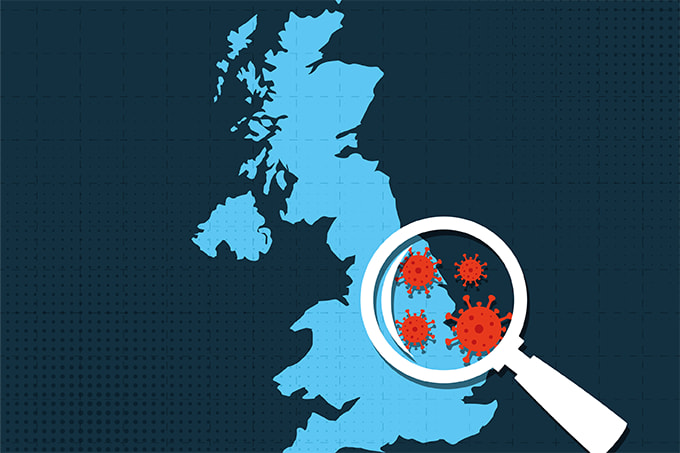We asked pathologists and laboratory medicine professionals to tell us how their professional and personal lives have changed during the COVID-19 pandemic.

Stefanie K. Forest, Associate Director of Clinical Chemistry and Immunology at Montefiore Medical Center and Assistant Professor of Pathology at Albert Einstein College of Medicine, Montefiore Health System, Bronx, New York, USA
On a Saturday morning in March, my husband woke up to our five-year-old requesting that he get up to play. He gladly obliged – but, about an hour later, he felt awful and had to lie down. Shortly thereafter, he developed a fever of 39°C (102°F) along with terrible aches and pains.
Soon after developing symptoms, my husband – a cardiothoracic surgeon – was informed of a known COVID-19 exposure. He and I were tested a couple of days later and were both officially positive for COVID-19. It felt surreal. Having seen the devastation the disease had caused in other countries, I was scared.
We remained at home, quarantined with our five- and two-year-old children, for two weeks. I was relatively asymptomatic at the time of diagnosis, but a couple of days later I awoke with a cough and felt tired and achy. Despite the illness and caring for our children, which included remote learning for our kindergarten-aged son, our “new normal” home life felt remarkably calm. I enjoyed the time with my family and appreciated being present and able to enjoy the moment. It’s so easy to get caught up in the day-to-day rush of events and activities when you’re not obligated to self-isolate. My husband and I were lucky to have relatively mild disease courses and the children did not develop any symptoms. But the experience put things into perspective – I felt truly thankful for our overall good health.
When we returned to work, my husband began covering in a newly created COVID-19 ICU and I resumed my role as Associate Director of Clinical Chemistry with a renewed sense of purpose. As well as our laboratory’s vital responsibility to assist the clinical teams treating critically ill COVID-19 patients by providing timely and accurate test results, there was now an urgent push for COVID-19 serology testing. My colleagues in the virology and microbiology laboratories at Montefiore did a tremendous job of rapidly bringing diagnostic COVID-19 PCR testing in-house on several different platforms, ensuring quick turnaround times.
I oversaw the validation of the Abbott COVID-19 IgG test in our chemistry laboratory. Our lab manager, supervisors, and technologists did an exceptional job of completing the validation within days of receiving the reagent, and the IT team was fantastic in setting up the interface to offer testing in-house to our patients and hospital employees. In addition, as part of the validation and to better understand the different methodologies and antibody response to COVID-19, we performed a method-comparison study with samples from several different cohorts.
As part of this study, we compared the in-house Abbott assay to an enzyme-linked immunosorbent assay (ELISA) developed by the Kartik Chandran laboratory at Albert Einstein College of Medicine to measure COVID-19 IgG, a lateral-flow device, and other tests. As part of my MD/PhD a decade ago, I developed an ELISA to measure insoluble tau in a mouse model of Alzheimer’s disease following immunotherapy – so I enjoyed the opportunity to interact with Kartik and discuss the importance of the translational nature of basic science research.
For the lateral-flow assay, we needed independent observers to perform the testing and report the results. Who better than anatomic pathology faculty to be the independent observers? I emailed our pathology residents and faculty asking for volunteers to assist in the actual testing and blinded observations; within an hour, I had about 10 interested participants. They developed an innovative assembly line setup and completed all the testing within a couple of hours. This collaboration with colleagues who were so quick to help was a wonderful experience.
Sadly, one of our colleagues in pathology lost her life to COVID-19 during the early days of the surge here in New York. The last time I saw her, she had just returned from a trip from Israel – an experience she recounted with passion. She was full of life and is profoundly missed. Just today, I was leading a committee meeting that had reconvened (virtually) for the first time since February. As I read through the names on the attendance list, I was shocked to see hers – an unexpected reminder of her absence. I truly hope a vaccine is developed soon to prevent a repetition of the devastating loss of so many lives to this disease.




